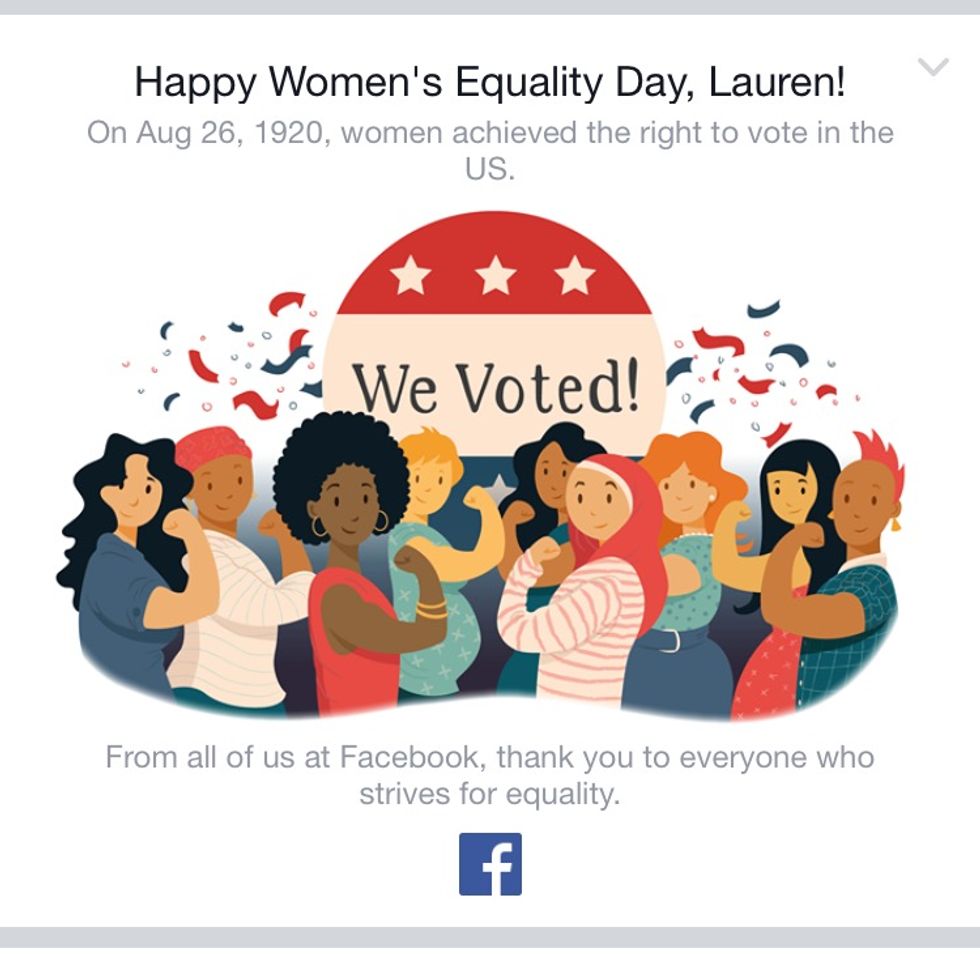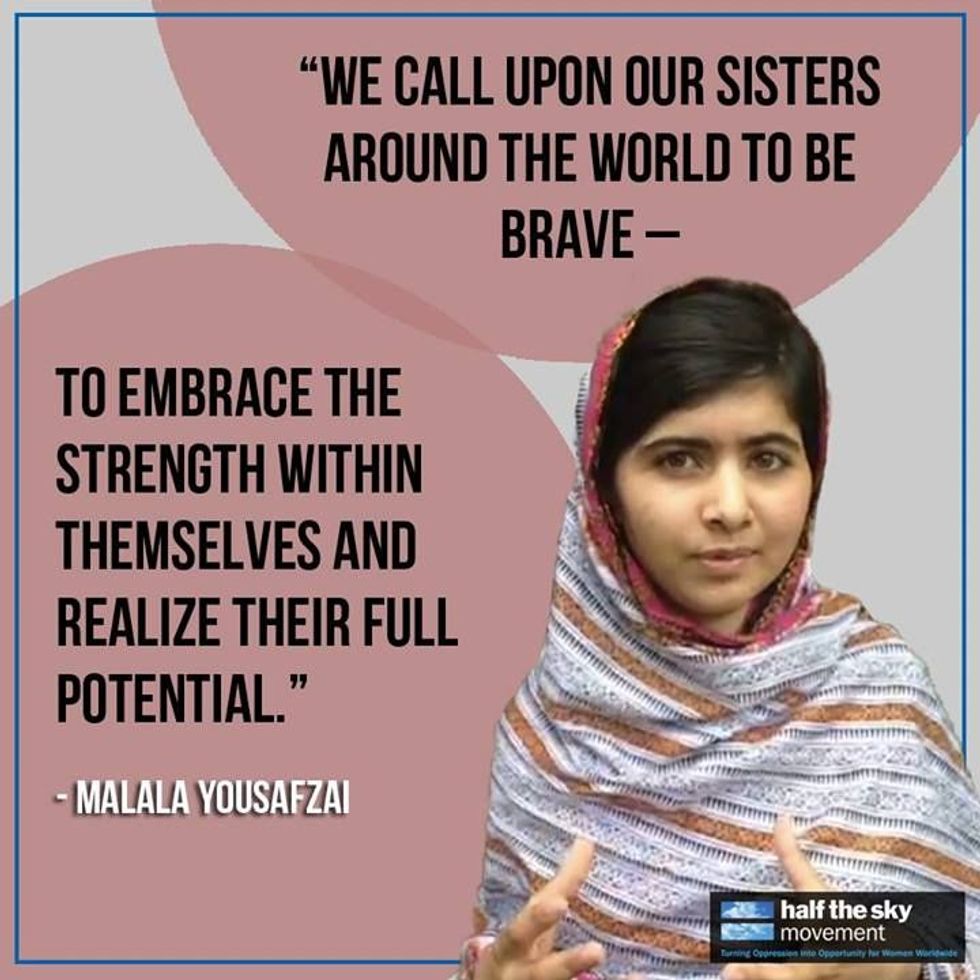I woke up on August 26 like it was any other day. Around 10 AM, I checked my phone to see the first new Instagram post of the day. It was an ode to a fluffy golden retriever that ended with “#nationaldogday.” I was skeptical at first, thinking that this was another stupid Instagram holiday that falls eight completely random times a year and is only observed by a handful of people. But as the day went on, the posts flooded my feed. #nationaldogday #mydogisbae #loveofmylife #woof. Being the dog-loving human that I am, how could I not participate? My Instagram is already probably 40% dedicated to my family’s two labrador retrievers, Kaylee and Albert. This was my excuse to post an adorable picture of them without being confronted with “Really, another dog picture?” I flipped through some photos on my Nikon camera and found this gem of my dogs, and of course, posted it on social media.
It was only after logging onto Facebook to check my National Dog Day Photo's likes that I noticed this message pop up on my timeline:
I love my dogs as much as the next guy (probably even more), but my already trivial photo suddenly felt much more trivial than it had when I first posted it. I felt like an ignorant millennial for letting a social media-based celebration overshadow a historical event that changed the way this country functioned. I felt like a lazy history student for not having this day committed to memory. I felt like a bad American because I have yet to register to vote even though I’ve been eligible for a year, and I felt like a bad feminist because the possibility of voting wouldn’t even exist for me were it not for this day 95 years ago, which I neglected to acknowledge
No, Women’s Equality Day is not marked on my calendar like Christmas. Yes, I do consider myself a feminist, but not the ‘feminist’ that society has demonized: the bra-burning, man-hating, hairy beast with a superiority complex. In fact, I know many people who would say, “yes, I am a feminist” based on two simple questions (www.areyouafeminist.com):
1. Do you think all human beings are equal?
2. Do you think women are human beings?
Of course, according to this cut-and-dry definition, I am a feminist. But, I don’t always feel like a good one. Though I can answer yes to both questions posed above, I sometimes feel I don’t stick to my guns where gender equality and women’s empowerment are concerned, making me feel kind of like a poser. Let me elaborate.
For one thing, I let Women’s Equality Day take a back seat to National Dog Day. I listen to music that could definitely be considered misogynistic (a.k.a. half the songs on pop radio). Case in point: I blast my radio when “Hey Mama” by David Guetta and Nicki Minaj plays because it is really catchy despite the fact that the lyrics are reminiscent of 1950s gender roles and stereotypes. I tell people to ‘man-up’ when they whine or are hesitant to do something. I’ve told my brother that he throws ‘like a girl.’ I find myself judging women and girls I don’t know entirely based on looks. If I am a so-called feminist, why do I partake in the popular culture that so often belittles and objectifies women? I know that Women’s Equality Day is not as big of a deal as Christmas or even the Fourth of July, but what does it say about our society when National Dog Day completely overshadows something so significant as the day half of this country’s citizens won the right to vote?
Women are regularly objectified and belittled in our society to the point where it has become old hat and we may not even realize when we’re feeding into it, and it is not just me that does. I know for a fact that many people who consider themselves feminists would also admit to 'slipping up' in similar ways. It is difficult not to when these antiquated ideas about women and girls are so embedded in our culture.
I have been lucky enough to have been surrounded by people my whole life telling me that I am capable of doing great things. I was raised in a country where I am allowed every right a man has, including the right to vote and the right to get an education. Women in other countries are plagued by such gender inequality that they aren't allowed to entertain the idea of going to school or having a career, which really puts our problems here in America into perspective. Still, changes need to be made, both nationwide and worldwide, socially, economically, culturally, and in the workforce. Effecting the big changes that need to be made starts with effecting the smallest changes first: not using 'like a girl' as an insult, turning off the music that objectifies women, and bringing more awareness to important days in women's rights history.






















